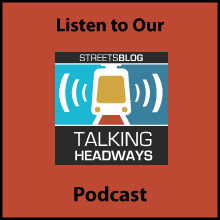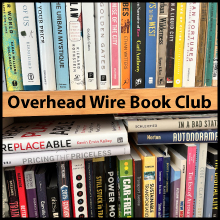The Overhead Wire Daily | Public Option Groceries
August 28, 2024
A number of years ago we chatted with our friend Alex Hoffman (Transcript | Audio) about accessibility data from the City of El Paso where he works as the Deputy Planning Director. Using data from Replica, he took a look at not just where people live, but where they go and how they could be better served by city services that exist but aren’t serving people well in the moment.
What brought me to that conversation in part was research by Brown University where researchers geotagged 133 million tweets shared between 2013 and 2015 and found that people aren’t just segregated by neighborhoods, but also by the commercial establishments they visit and where they eat and socialize.
What Alex noted about related accessibility to this finding was really interesting. On the topic of grocery stores, he mentioned that our maps and data could show that an area has access to a grocery store, but it might not really count as accessible if people want to go to a specific place such as an ethnic grocery instead of a Whole Foods. This makes discussions of food access harder when we’re not just talking about proximity but preferences.
That’s what I was thinking about when I saw that Chicago was considering the possibility of opening three groceries of its own to support neighborhoods where national chains have recently shut their doors. The program would be the first time a city tried to operate a publicly owned grocery store.
Community and non-profit groceries have done similar things but as Patrick Sisson mentions in the article, it’s a tough road when they don’t have the purchasing power of large chains and must operate at very low margins to stay alive.
We also chatted back in 2019 with Vanan Murugesan who at the time was the head of Pillsbury United Communities in North Minneapolis. People in the area would spend 45 minutes or $5-$10 on cabs to get to grocery stores outside of the area. To help, Pillsbury had started up a non-profit community grocer after realizing that the area could support one. What also made it successful was creating a community destination with a wellness center that offered classes and activities in addition to offering healthy food closer to where people lived.
So if Chicago goes forward with a public option grocery, I hope they consider the other potential roadblocks and opportunities of preference and community service before just building a store that technically serves the community in a geographic sense but might miss out on what residents seek.
***
For this intro post and more news in your inbox every morning, sign up for a two week free trial of The Overhead Wire Daily, our popular newsletter established in 2006.







